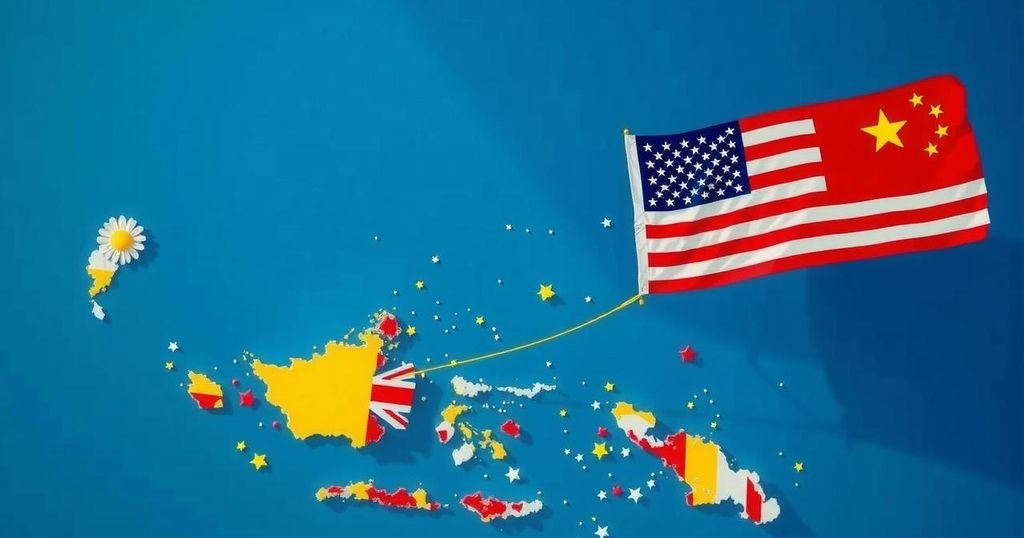Palau’s Election: A Reflection of Geopolitical Tensions and Economic Struggles
On November 5, Palau will hold elections amid rising economic challenges and geopolitical tensions between the US and China. Current President Surangel Whipps Jr. faces off against former President Tommy Esang Remengesau Jr., with economic management and international relations at the forefront of their campaigns. Residents express concern over a cost-of-living crisis and the reliance on tourism, while candidates propose differing visions for Palau’s future, balancing national security and environmental concerns in the context of foreign diplomacy.
On November 5, Palau, a small Pacific nation with strong ties to the United States and Taiwan, will hold elections that coincide with the US elections. This electoral event comes at a time when Palau’s economy is struggling, grappling with rising living costs primarily due to its reliance on imported goods from the United States, even as geopolitical tensions between the US and China escalate in the region. The presidential race features President Surangel Whipps Jr., a pro-US candidate focused on strengthening economic reforms and enhancing ties with Washington, against former president Tommy Esang Remengesau Jr., who has expressed a willingness to explore closer relations with China while emphasizing climate action and sustainability. Dr. Michael Green from the United States Studies Centre highlights the strategic importance of Palau, stating, “These small islands that few people know about suddenly become the objects of major strategic competition.” Residents like truck driver Aiu Andres report economic hardships worsened by rising prices and a limited import economy, with the nation relying heavily on tourism, which comprises around 40% of its GDP. The ongoing tensions have affected tourism, particularly from China, which experienced a decline due to political measures taken by the Chinese government, impacting Palau’s primary revenue source. Amidst these challenges, President Whipps has advocated for the continued presence of US military forces in Palau, emphasizing the benefits of this relationship. He stated, “As a small nation … I think it’s a benefit for Palau to have that special relationship with the United States.” In contrast, Mr. Remengesau critiques the focus on militarization, asserting that the priority should be on addressing climate change rather than defense strategies in the Pacific, thereby highlighting the need for local governance to genuinely consider the citizens’ comprehensive needs rather than yielding to external influences. The perception of China within Palau remains complex, with locals divided on whether engagement with China poses a threat or an opportunity for economic growth. Initiatives, such as potential ties with Chinese businesses, face skepticism from many residents who echo concerns about economic sovereignty and governance integrity.
The upcoming election in Palau reflects not only local political dynamics but also broader geopolitical concerns, particularly the influence of the United States and China in the Pacific region. Palau, which maintains diplomatic relations with Taiwan, stands at a crossroads with its economy closely tied to tourism and imports predominantly from the US. The strategic importance of the archipelago is underscored by its military agreements with the US, which have been the subject of debate during the election campaign.
The election in Palau is not merely a local political contest; it encapsulates the broader strategic competition between the US and China, particularly in the Pacific. As Palau navigates economic pressures and geopolitical influences, the choices made by its leaders may significantly impact its future relations with both major powers, especially regarding military presence and climate priorities. While President Whipps advocates for stronger ties with the US, Remengesau calls for a balanced approach that includes respectful engagement with China, indicating complex challenges ahead for the island nation.
Original Source: www.theguardian.com




Post Comment